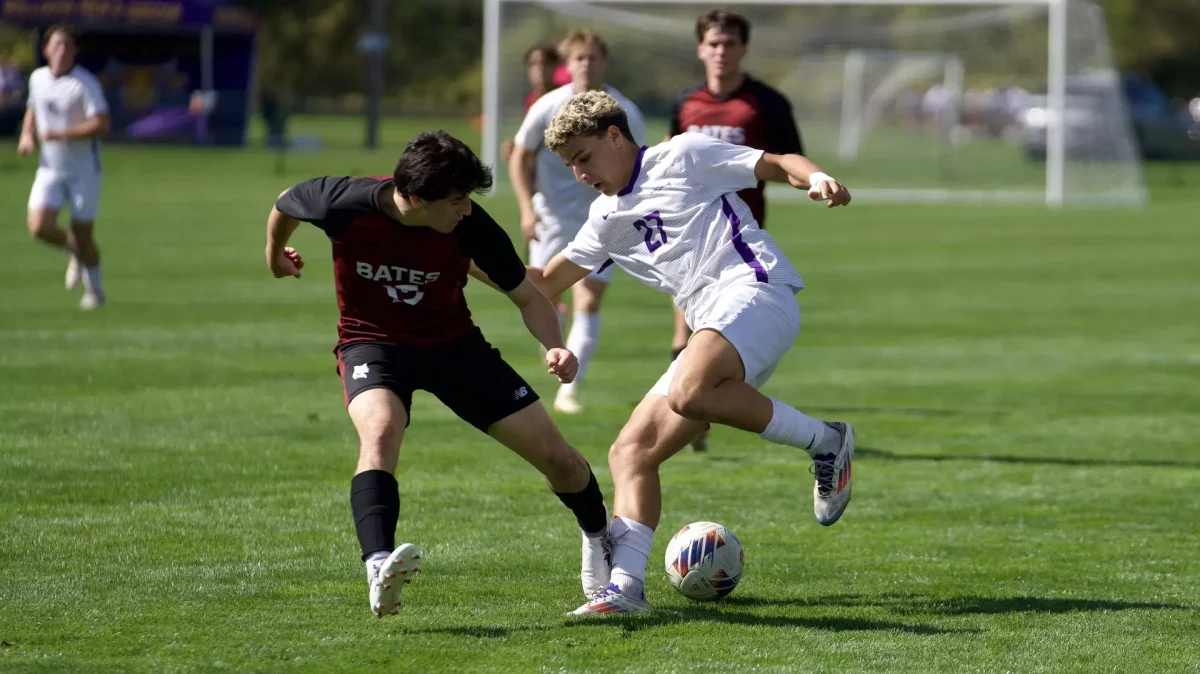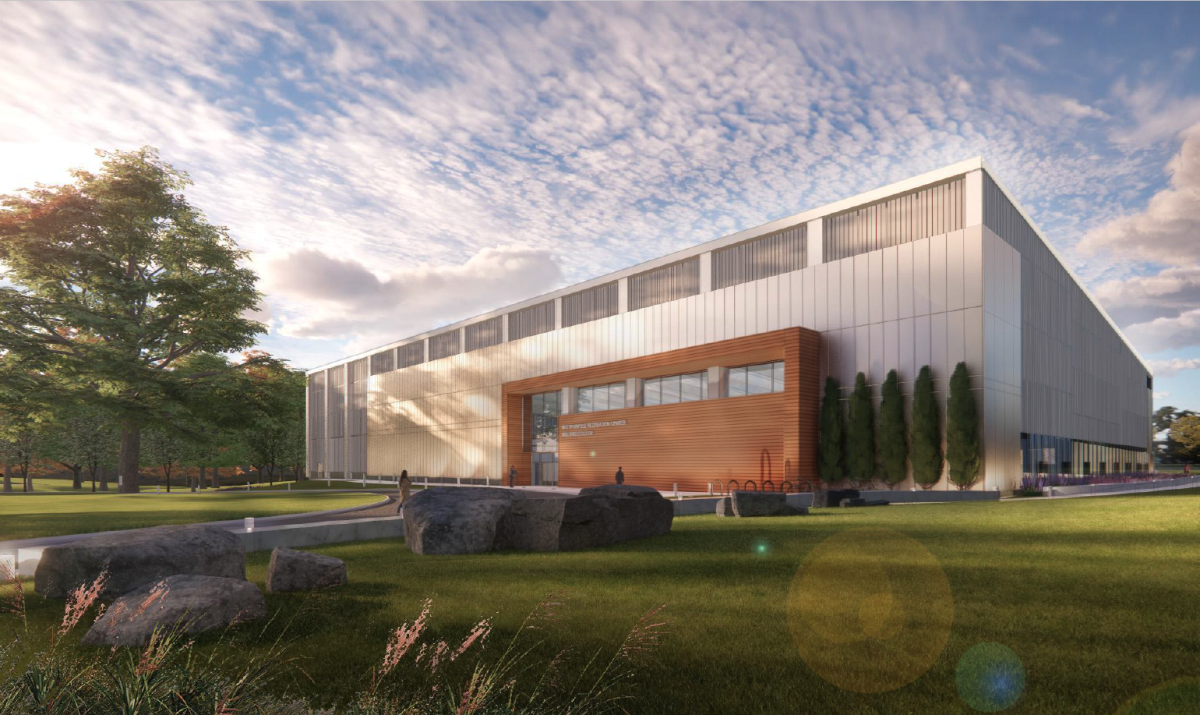A petition calling for the College to extend the appointments of junior non-tenure track faculty is circulating among the faculty, staff, students and alumni communities, as multiple committees convened by President of the College Maud S. Mandel assess the financial impact of the COVID-19 pandemic and the feasibility of reopening the College for the Fall 2020 semester.
Addressed to Mandel, as well as the Faculty Steering Committee, the Ad Hoc Committee on Financial Planning and the Committee on Appointments and Appropriations, the petition advocates that the College “extend appointments for postdocs and visiting assistant positions through Spring 2022.”
In a statement to the Record, Mandel said that the administration has not yet made any decisions with regard to the petition’s demands, while Associate Dean of Faculty John Gerry emphasized the need to weigh the College’s finances while addressing such demands.
Citing an uncertain academic job market driven by the pandemic, the petition argues that the College’s many junior faculty currently working on term-limited contracts could potentially face the end of their time in academia.
“If contracts are not extended through the 2021-22 academic school year, the careers of many of us will likely come to a halting end, even after years of training, and often, years of service to Williams,” the petition reads, referencing the hiring freezes that have been taken by several colleges across the country. Brown University, Boston University, University of Minnesota in Twin Peaks and the University of Akron are a few of the many institutions that have instituted hiring freezes in response to the financial circumstances imposed by the pandemic.
Post-doctorate fellows and visiting faculty, the petition adds, “are even more vulnerable amid the current pandemic as they must now balance research production and teaching, while also facing the stressful prospect of unemployment, loss of health insurance, and a probable end to their academic careers.”
Alongside its arguments that an extension of these faculty appointments would significantly aid the faculty whose contracts would be up in the coming semesters, the petition also argues that the extension of junior terminal faculty contracts would aid the College in its ability to serve its student body as the College grapples with the fallout from the pandemic.
“The postdoctoral and visiting assistant professor positions, needless to say, bring immense value to Williams,” reads the petition. “Not only do they add to the College’s course offerings, but, by filling in for faculty on sabbatical as well as faculty in administrative positions, they also allow the College’s tenured and tenure-track faculty to pursue their research and contribute to the governance of the College, without the College diminishing its commitment to small class sizes. In the current hiring slow-down, without new faculty coming in, Williams will be all the more dependent upon these junior faculty for maintaining its small class sizes.”
Some fellows at the college have signaled their support for the petition, emphasizing the effect that the Coronavirus pandemic may have on conducting research and establishing a career in academia. Bolin Fellow in Environmental Studies Brittany Meché, who taught a class entitled “The African Anthropocene” in the fall, emphasized the importance of her experience as a Bolin Fellow with the College.
“The fellowship has allowed me to learn about the ins and outs of faculty life while completing my dissertation,” she said. While Meché is joining the college faculty in the fall 2021, she has expressed support for the petition.
“I enthusiastically signed the petition to extend contracts for visiting faculty and postdocs. The petition would not directly impact me, but it would provide much needed support for many others on campus who contribute to academic life at Williams in countless meaningful ways,” Meché said.
Dr. John Lacy, a postdoctoral research fellow in physics, also emphasized the importance of fellowships in establishing a career in academia.
“I have felt, for a long time, that there is a great synergy between research and education, and my predominant reason for coming to an institution like Williams was to explore this,” Lacy said. He added that
the numerous delays and cancellations of research opportunities could harm fellows’ ability to gain future employment in their fields.
“I worry that such failure to produce something tangible – in the academic world, the currency is a plurality of high-impact peer-reviewed publications – could damage my chances of getting a permanent position somewhere,” he said.
Lacy added that he had not heard of the petition but supports its mission in principle.
“The likelihood of landing a permanent academic position depends strongly on both research output and demonstrated ability to teach at a high level, both of which are severely hindered by the lockdown we are experiencing,” he said. “Thus, in my opinion, in order to not disadvantage the postdocs and junior and visiting faculty members … it seems only fair to, if the lockdown measures persist for much longer, at least offer or negotiate extensions to their current contracts.”
Scholars on a national level have expressed similar concerns surrounding the extension of non-tenure faculty members’ fixed term contracts. A statement of academic solidarity in support of contract extensions has garnered several hundred signatories from universities around the country, including the College. The statement says that its signatories “will not accept invitations for speaking engagements, workshops, and conferences at named institutions.” Currently, 30 colleges are being watched by this statement, with individuals able to recommend universities to add to the list that they perceive to be unsupportive of non-tenure faculty. The list is expected to grow as the statement receives more submissions.
In an April 11 message from the Office of the President entitled “Response to questions about college financial planning and staffing,” the office wrote that “the college has protected everyone’s job so far” but admitted “the request for a promise of no cuts is harder to answer, because the college has never been able to make such a promise, given that none of us can predict what the future will bring. But the people of this community are our most precious resource, and we can and do promise you that the college will exhaust our other options before considering layoffs or furloughs.”
In an email to the Record, Mandel emphasized that while “[the administration] can’t make promises about what the college will or won’t do before the group has had time to do…we’re certainly thinking about postdocs and visiting assistant professors as part of that process, along with everyone else.”
Gerry added that decisions surrounding extending the contract of junior terminal contract faculty are necessarily assessed in the context of the College’s other financial obligations.
“The petition to continue employing short-term faculty for up to two extra years has to be considered alongside all of those other priorities, and every financial decision involves a trade-off. In this case the cost would be quite high as there are several dozen short-terms visitors hired each year. So if the College were to extend all the short-term faculty contracts, that expense would necessarily translate into a significant reduction in some other budget area(s).”
Currently, the financial planning committee is open for comments and the petition is still receiving signatures. The College has not announced when the Ad Hoc Committee on financial planning will deliver its recommendations.
Correction: This article was updated at 5:15 on May 8, 2020 to accurately reflect when Professor Meché is joining the college’s faculty. Previous editions of this article stated that she was joining the faculty in Fall 2020, however she is joining the faculty in Fall 2021. We deeply regret the error.












